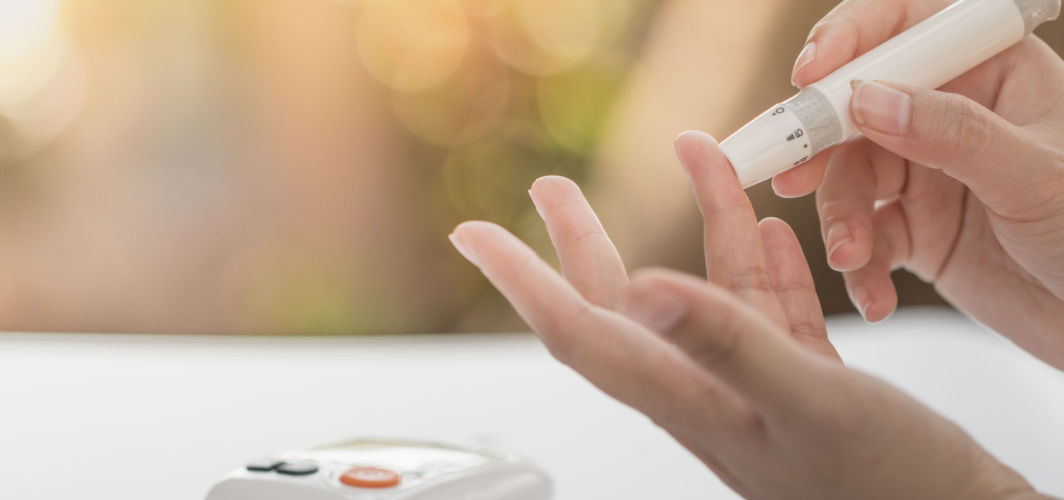Diabetes Management
Should Non-Diabetic People Check Their Blood Sugar Levels?
4 min read
By Apollo 24|7, Published on - 13 October 2023, Updated on - 22 February 2024
Share this article
0
0 like

Individuals living with diabetes keep a close eye on their blood sugar levels to ensure effective management of their condition. However, a question that often arises is whether non-diabetic individuals also consider checking their blood sugar levels. This blog will explore the reasons, potential benefits, and considerations for non-diabetics.
Reasons for Non-Diabetic Blood Sugar Monitoring?
- Early Detection: Regular blood sugar checks can help identify prediabetes, a condition where blood sugar levels are elevated but not in the diabetic range. Detecting prediabetes early allows for proactive measures to prevent or delay the onset of Type 2 diabetes.
- Family History: If you have a family history of diabetes, you may be at a higher risk of developing the condition. Monitoring your blood sugar can offer insights into the risk factors and help you make lifestyle changes to keep it in control.
- Weight Management: Maintaining a healthy weight is essential for diabetes prevention. Blood sugar monitoring can help individuals track how their lifestyle choices affect their glucose levels. It also provides valuable feedback for weight management by helping you make healthier dietary choices, eat appropriate portion sizes, and exercise at the right time in relation to meals.
- Lifestyle Modifications: Some non-diabetic individuals may experience symptoms like unexplained fatigue, unusual weight gain (especially around the abdomen), weight loss, hunger cravings, skin pigmentation, increased thirst, frequent urination and irregular cycles in women. Monitoring blood sugar levels can help determine if these symptoms are related to fluctuations in glucose levels.
Considerations for Non-Diabetic Blood Sugar Monitoring:
- Recommended blood tests: The American Diabetes Association recommends that diabetes screening with a lab-based HbA1c fasting blood sugar or oral glucose tolerance test for most adults should begin at 35 years of age. These tests should be performed before the age of 35, if you are overweight and have additional risk factors for prediabetes or type 2 diabetes. There are several blood tests you can do to screen for diabetes, like lab-based Hba1c or Glycated haemoglobin test, Fasting blood sugar test, and Oral glucose tolerance tests. You can even do at-home blood sugar monitoring with the help of a blood glucose monitor, otherwise called a glucometer or a continuous glucose monitor. These meters are widely available and easy to use.
- Frequency: Non-diabetics generally do not need to check their blood sugar as frequently as those with diabetes. If your Hba1c levels are normal but are over 35 years old or have other risk factors repeat the test once every 3 years. If you're prediabetic, you must repeat the Hba1c test at least once a year. There are no guidelines on the frequency of sugar monitoring done at home. However, it is advisable for pregnant women, obese individuals, and pre-diabetic individuals to consider targeted sugar monitoring like after meals, especially unusually heavy meals, pre-post exercise, during stressful periods etc.
- Consult a Healthcare Provider: Before starting blood sugar monitoring, especially for those with specific risk factors or symptoms, it is advisable to consult a healthcare provider. They can recommend the appropriate testing frequency and interpret the results.
- Lifestyle Modification: Lifestyle modifications can help keep your blood sugar levels in check. In the case of prediabetes, an individual should consider working with a dietitian or healthcare provider to develop a plan for dietary changes and increased physical activity.
In conclusion, while routine blood sugar monitoring is not necessary for non-diabetic individuals, there are valid reasons for occasional checks, especially for those with risk factors like family history, overweight or obesity, gestational diabetes, sedentary lifestyle, age more than 35 years, polycystic ovarian syndrome in women, smoking, and sleep apnea. Such monitoring can be a valuable tool for early detection, preventive action, and overall health awareness. The key is to consult a healthcare provider, discuss individual risk factors, and develop a tailored approach for blood sugar monitoring.
Diabetes Management
Consult Top Diabetologists
View AllLeave Comment
Recommended for you

Diabetes Management
What Not to Eat in Diabetes: A Guide to Managing Your Diet
For effective diabetes management, avoid sugary beverages, snacks, and sweets. Limit intake of white bread, fried foods, and full-fat dairy. Consume processed meats, sweetened condiments, high-sugar cereals, and alcohol in moderation. Opt for healthier alternatives to control blood sugar and reduce risks. Seek guidance from healthcare professionals or dietitians for a personalized plan.
.jpg?tr=q-80)
Diabetes Management
Empowering Athletes with Diabetes: Strategies for Optimal Performance
Athletes with diabetes can optimise their performance by combining effective nutrition, insulin management, and diabetes education. Balancing carbohydrate intake, adjusting meal timing, staying hydrated, and monitoring blood glucose levels are vital steps towards better performance. Stay ahead in your game by learning how to manage diabetes effectively with the Apollo Super 6 programme.
.jpg?tr=q-80)
Diabetes Management
Managing Diabetes in Pets: An Overview and Signs to Look Out For
Our furry friends can also fall prey to diabetes. With symptoms including increased thirst and urination, weight loss despite a normal or increased appetite, it's crucial to stay vigilant. Early detection followed by proper management like regular vet check-ups, insulin therapy, and dietary changes can help your pets lead a healthy life.
Subscribe
Sign up for our free Health Library Daily Newsletter
Get doctor-approved health tips, news, and more.
Visual Stories

8 Fruits That are Incredibly Healthy for Diabetes
Tap to continue exploring
Recommended for you

Diabetes Management
What Not to Eat in Diabetes: A Guide to Managing Your Diet
For effective diabetes management, avoid sugary beverages, snacks, and sweets. Limit intake of white bread, fried foods, and full-fat dairy. Consume processed meats, sweetened condiments, high-sugar cereals, and alcohol in moderation. Opt for healthier alternatives to control blood sugar and reduce risks. Seek guidance from healthcare professionals or dietitians for a personalized plan.
.jpg?tr=q-80)
Diabetes Management
Empowering Athletes with Diabetes: Strategies for Optimal Performance
Athletes with diabetes can optimise their performance by combining effective nutrition, insulin management, and diabetes education. Balancing carbohydrate intake, adjusting meal timing, staying hydrated, and monitoring blood glucose levels are vital steps towards better performance. Stay ahead in your game by learning how to manage diabetes effectively with the Apollo Super 6 programme.
.jpg?tr=q-80)
Diabetes Management
Managing Diabetes in Pets: An Overview and Signs to Look Out For
Our furry friends can also fall prey to diabetes. With symptoms including increased thirst and urination, weight loss despite a normal or increased appetite, it's crucial to stay vigilant. Early detection followed by proper management like regular vet check-ups, insulin therapy, and dietary changes can help your pets lead a healthy life.

